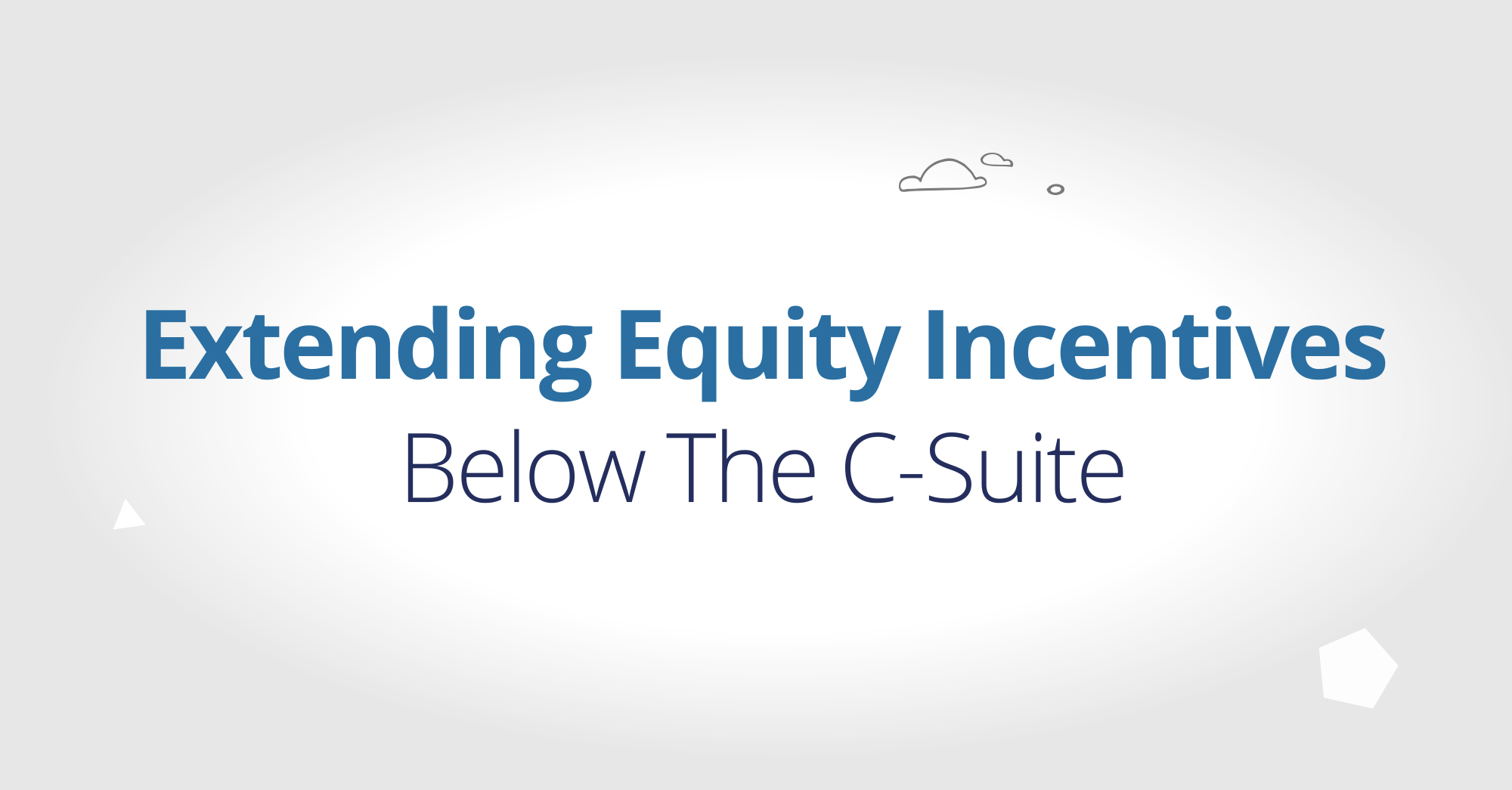It is common practice to grant equity compensation to those in the C-suite, meaning executives’ pay packages are often enhanced through offerings of stock options, restricted units or other forms of equity-based incentives. This method of reward, giving participants a real stake in the company has proven successful at, not only attracting, but also in retaining top talent.
Focusing exclusively on the C-suite generates an ownership culture that dissipates and leaves the majority of employees lacking any form of equity-based impetus. So what’s stopping companies from extending those same benefits to workers throughout other levels of the business?
From an employer perspective the Great Resignation and the ongoing mass migration of technically skilled workers, especially in the finance and tech sectors, has cast a harsh light on the need to address this, with the double impact of:
- valued staff leaving for competitors; and
- the rising cost of attracting new talent.
A modern approach – Equality through equity
Equity compensation motivates people by giving them a compelling, financial reason to remain with the company. Staff whose goals are aligned with those of their employer want to see the company do well, which in turn benefits them and the circle continues. By making staff feel like owners you get them to think and act like shareholders. They realize that their performance has a tangible impact, which is both clear and rewarding. For employers it can address those big concerns which give HR Departments headaches, like productivity, engagement, talent retention and reducing absenteeism.
Equity helps reinforce the idea that a company is a collective of people who are working together towards a common goal. Granting employees, across all layers of the business, access to equity compensation can also impact positively on other concerns, such as gender, race or sexual orientation-related pay gaps.
Focusing on senior management, and those at the top of the corporate pyramid exclusively, results in an equity chasm, whereas extending equity compensation throughout the workforce brings with it a level of equality.
Equity compensation options
Equity incentives can take many forms, including stock options, restricted stock grants, profit interests or other rewards directly or indirectly linked to the value of a company.
Restricted Stocks – RSUs and RSAs: grant the participant employee company shares if they achieve certain performance goals or complete a set tenure.
Unapproved Stock Options: give an employee the right to purchase company shares, at a pre-determined price, following a set vesting period.
Cash deferred bonus plans – SARs & Phantom Stock: compensation that is tied to the company’s stock performance.
Approved employee share schemes: Save As You Earn (SAYE), Approved Profit Sharing Schemes (ASPP), Key Employee Engagement Programs (KEEP) and Employee Share Ownership Trusts (ESOT). These can be tax-advantageous for employers and employees alike.
There are a lot of things to consider before you decide what type of compensation package to go for and it’s always best to get expert advice. At Global Shares we work with some of the best companies in the world. Speak to us today to find out how we can help yours.

Not just for startups
Compensation practices in the private industry broadly follow the public company playbook, with equity incentives heavily weighted towards senior leadership, but it doesn’t have to be this way.
Advancing equity compensation across the wider workforce has long been a common feature of startups, where funds are often tight and there may not be the ability to match wages. Highly sought after staff may find they are offered a stake in the company, the idea being this will motivate them to drive the business to the next stage of growth, be it an IPO or other target, to which their benefits are linked. This tactic can work just as easily in more established, mature companies – whether public or private.
A well-known company looking to extend equity compensation beyond the C-suite are tech giants Microsoft. They announced that in 2022, in a bid to address internal dissatisfaction with compensation and to halt employee attrition to competitors, they will begin extending stock awards to early and mid-career level employees for the first time ever.
Compliance considerations
There may be taxation, compliance requirements or other restrictions, depending on the region or territories where your company and your employees are based, so it’s always advisable to engage compliance experts early in your equity compensation journey.
At Global Shares we provide compliance advice as part of our overall service, so know that when you’re speaking to one of our advisors you’re getting the best possible treatment.
Find out more and reap the rewards
Not granting wealth creation potential to employees below the C-suite and further down the corporate ladder is a missed opportunity, not just for your company, but for shareholders and the workforce in general.
The benefits speak for themselves. By extending the chance to access meaningful equity ownership to a broader cross-section of the workforce you are opening the potential for heightened engagement and job satisfaction, with energized, enthusiastic workers.
At Global Shares we understand the power of employee ownership. No matter what stage you are at in your company’s lifecycle we can help you to address your employee equity solution needs. We work with companies across the globe each day to manage their share plan requirements, so request a demo and find out how we can help with yours.
Employee Ownership, simplified – it’s what we do.
This publication contains general information only and J.P. Morgan Workplace Solutions is not, through this article, issuing any advice, be it legal, financial, tax-related, business-related, professional or other. J.P. Morgan Workplace Solutions’ Insights is not a substitute for professional advice and should not be used as such. J.P. Morgan Workplace Solutions does not assume any liability for reliance on the information provided herein.



